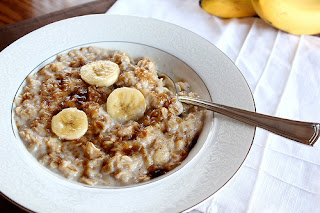Dark leafy green vegetables:
·
Greens are naturally
low in salt and fat.
·
Greens are good
sources of fiber.
·
Are rich in vitamins
A, C, K and folate.
·
Greens are high in the
minerals calcium, iron, potassium and magnesium.
·
Offer protection
against heart disease.
·
Greens Can help slow
insulin resistance, which can often be a pre-cursor to diabetes.
·
It May help decrease
the risk of developing pancreatic and prostate cancer.
·
Are so low in calories
that they are often considered a “freebie” in most diets.
·
These Are rich in
protective antioxidants such as beta carotene and lutein,
it help prevent many chronic diseases.
it help prevent many chronic diseases.
·
It May help improve
memory.
People may have gained health benefits from wild greens
over 200,000 years ago. Today, greens are known as one of the healthiest
vegetables, and also they’re inexpensive. Organic greens may be healthier than
conventional non-organic greens due to their defensive response to getting
bitten by bugs.
The calcium in green leafy vegetables is more effectively absorbed by the body than that found in cow’s milk. Potassium from dark greens may be anti-inflammatory and may prevent strokes and heart disease. Greens can also have an antioxidants, iron, zinc, and magnesium, a nutrient that may lesser the risk of a range of health concerns including diabetes, heart disease and sudden cardiac attack. Fresh organic Dark Greens are the best source of plant-based nitrates. Nitrates from a plant-based diet are very useful for human body. In fact, nitric oxide formed from plant-based nitrate may play a vital role in the prevention of high blood pressure and heart disease. Eating whole plant foods is likely better for your health than taking expensive and (harmful) supplements. For example, folate, which can lower the risk of depression, in greens appears preferable to folic acid supplements. Many nutrients found in organic greens vegetables are fat soluble, which means including some healthy whole food fats like nuts and seeds, in a meal can help you better absorb the phytonutrients. Plant-based diets, including greens, tend to be alkaline-forming, which may help protect your muscle mass and reduce the risk of gout and kidney stones. High consumption in particular of dark green leafy and cruciferous vegetables may be linked to lower rates of cognitive decline. Greens can be an important part of a plant-based diet that could reduce risk for cardiac disease and heart attack. Some valuable nutrients are destroyed by cooking, but some nutrients become more absorbable. So, a mix of cooked and raw vegetables, including greens, may be the best. Smoothies may also be a great source to get all of the nutrients greens have to offer. Although make sure to drink whole food smoothies (not made from juice), and it may be better to use a straw to prevent enamel erosion.
Consuming at least one serving a month of greens appears to reduce the risk of glaucoma by 69%. Zeaxanthin and Lutein, nutrients found greens, also appear to be protective against cataracts and macular degeneration. Greens consumption is also linked with increased physical attractiveness, reduced scares, improved dental health, facial wrinkling, better immune system, and may reduce free radical DNA damage.
Two to three daily servings of greens may help clear the
human papilloma virus, which can cause cancer. Eating dark green leafy
vegetables may also reduce risk for kidney cancer, breast cancer and lymphoma,
and overall cancer risk. Adding mustard powder to cooked greens can boost
sulforaphane levels to help protect against cancer.
Overall, most people in the U.S. fall short in meeting
guidelines set by the USDA. For example, nine out of ten Americans could not
meet the recommended minimum for vegetables (nine servings a day), including
dark green leafy vegetables.
Source: http://nutritionfacts.org/topics/greens/page/8/









